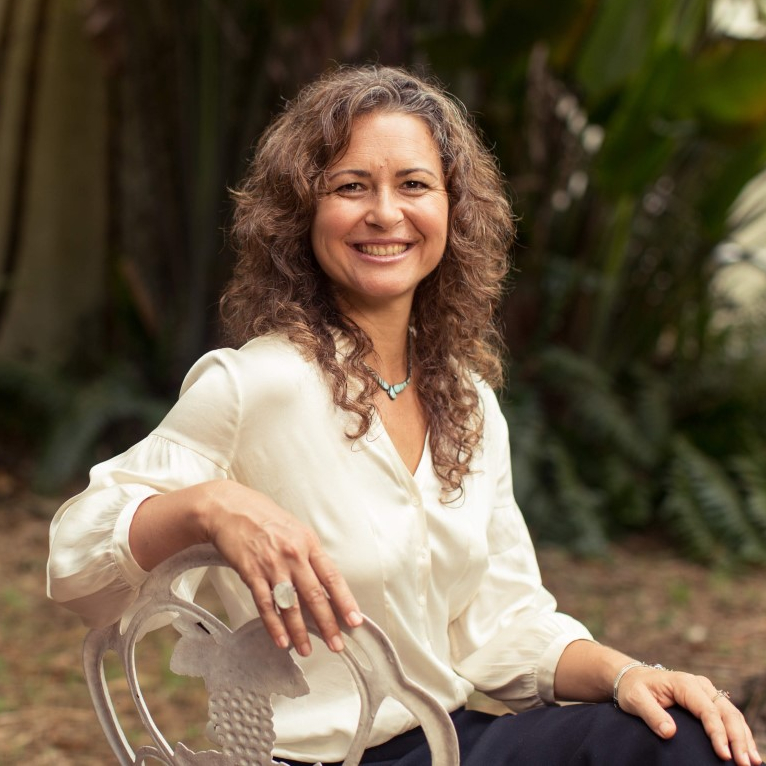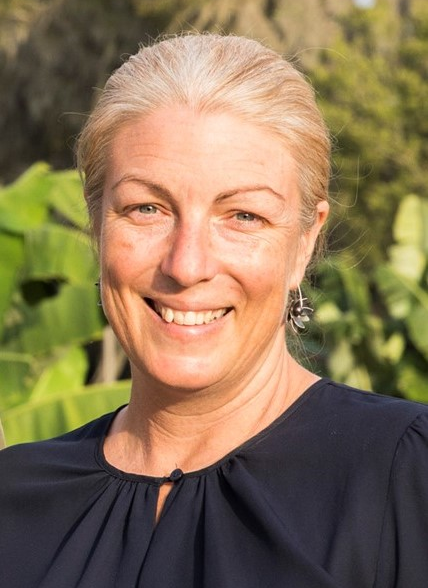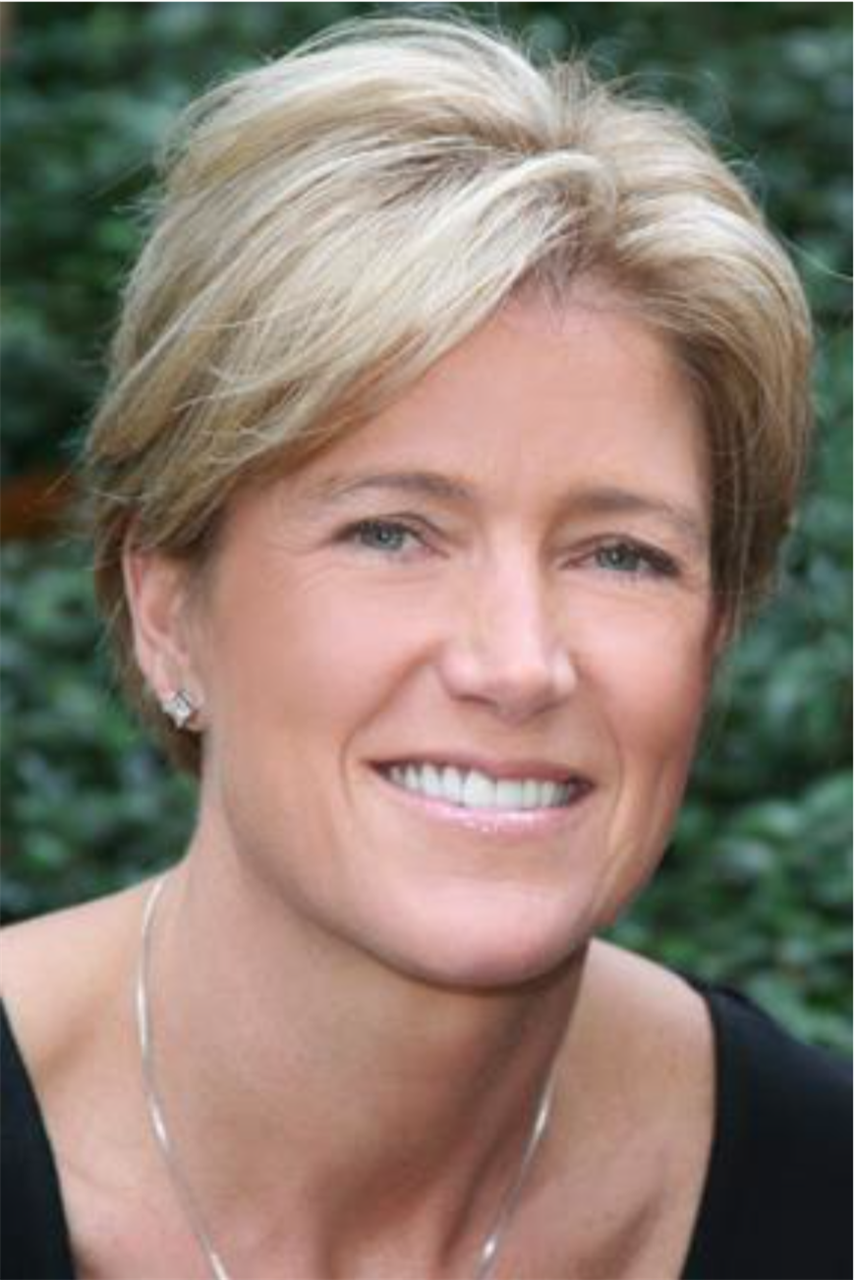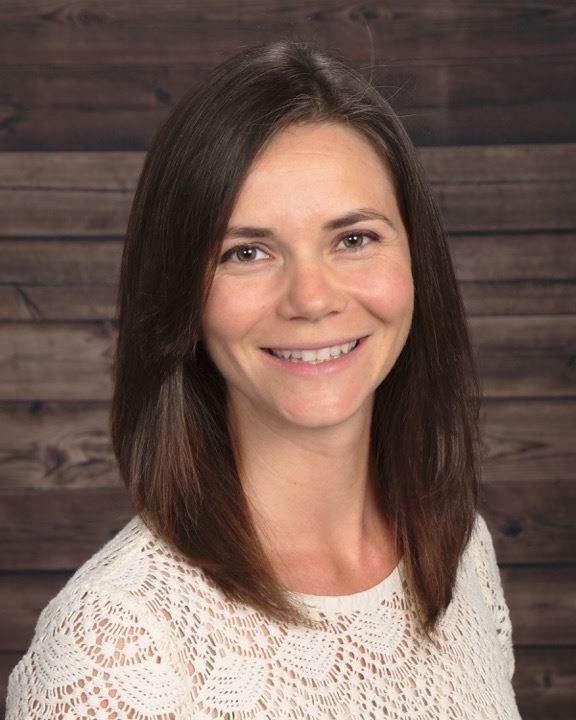
Follow Up: March Florida Food Forum
Women in the Food System
If you were unable to attend the meeting, the full presentation is available online here.
To keep the conversation going, please visit our forum on Women in the Food System here to add your thoughts and comments.
On March 27th, the Florida Food Forum on Women in the Food System was led by Rachel Shapiro, Chair of the Florida Food Policy Council.
During the forum, Rachel hosted an interactive panel discussion with three amazing women who make up the Florida food system: Anna Prizzia, the Field & Fork Program Director and Campus Food Systems Coordinator for the University of Florida, Robin Safley, the Executive Director of Feeding Florida, and Carmen Franz, the Farm Director at Arden, a master planned “Agrihood” community in South Florida.
The presentation began with introductions after which panelists were asked how their previous work in the food system impacted their current roles.
“I guess the most basic role I play is as an eater,” Anna said, “And as an eater, I think it has probably influenced my role in the food system most of all because when I was coming back from my stint in Peace corps, I had been eating so differently while I was there—right from the garden and butchering our own meat when we decided to eat meat. So, I really gained an appreciation for where my food comes from and wanted to have that same close connection to my food when I returned.” Unable to find that same connection, Anna ended up founding a Slow Food chapter in her community. For Anna, this experience really cemented the role that she saw herself having, which was helping connect her community to the amazing resources available for local and sustainable food options and trying to make those more accessible.
Robin’s extensive background as a lawyer, then as Chief of Staff to the Florida Senate President and Chief of Staff to the Florida Commissioner of Education, enabled her to work in high levels of policy, which demanded an ability to problem solve and run programs efficiently. These skills helped her thrive in her position as Director of the Division of Food, Nutrition and Wellness at the Florida Department of Agriculture and Consumer Services. Through this position Robin became deeply invested in the institutional feeding programs and passionate about how to fix have gaps in the food system.
“Food access and thinking about healthy food as a human right, but also the desire to leave the planet better than how I found it,” are the things that inspire Carmen the most. After receiving her degree in political science and studying food policy at University of Florida, where she picked up a minor in crop production, Carmen’s interest in food and farming grew. As the Fresh Access Bucks Manager for Florida Organic Growers, Carmen was able to become more involved in the Florida food system, closely working with state and local agencies and nonprofits across the state. “I really enjoyed that position and being able to work with underserved communities to increase their access and the affordability of healthy food,” she said. “Now I’m enjoying my hands in the dirt, and I really enjoy the educational aspect of things. So being able to interact with residents and teaching people where food comes from, and how to prepare it and cooking is definitely my passion.”
“Why do you do it?” Rachel asked, explaining her curiosity as to what motivates and inspires women to commit so much energy to the food system.
“One thing I’ve noticed,” Rachel said, “is A) about 80% of those of us who show up and do the work are women and B) doing food system advocacy work takes a heck of a lot of commitment...So why do you stay up until 1 o’clock in the morning working on the initiatives of the non-profit and then get up at 6 o’clock in the morning to get food to the market? And why do you drive thousands of miles around the state without taking any food breaks or bathroom breaks so that you can show up and get food moved or people who need it? And why do you farm in the heat of Florida and make sure that your residents get their baskets of food every week?”
“When someone calls you from Miami, who is wheelchair bound and has very poor eyesight and broken English and is hungry, and you can make a call and have someone deliver them healthy food and they are telling you ‘God bless you! God bless you!’ I think that’s what drives me. And I think by nature probably everyone on this call is a high-achiever anyway. It’s sort of what happens. So, I just take that energy that I have in life anyway and I’ve channeled it and have become extremely passionate about solving the food system issues, at least for Florida,” Robin said. “I just always say…that if we can land something on Mars, why can’t we figure out how to get healthy food to those who need it and in their environment at the price where they can afford it?”
“Our food system, and so many of our systems have been built it a structure that just really doesn’t work,” said Anna. “It benefits a few at the exploitation of many. I want to believe that we can create a system that’s truly sustainable. Where people are valued and cared for and that community is at the heart of the work that we do. And that people can make living wages and that people can eat healthy food that’s grown in a way that honors the Earth and the people who are having to do the work.” For Anna, the dynamic of believing in something and being an optimist who believes in sustainability, while also being a pragmatist that knows what is necessary to create changes effectively drives her work.
“I’m very much so energized by the one on one interaction and seeing people light up about sharing recipes,” Carmen added, “Hearing people share recipes and their cultural experiences and how they grew and what they grew and the whole history of food, is very inspiring to me…And I really get excited about is the opportunity to introduce people to food, and fresh food in cooking and sharing. That is what’s mostly motivating me now.”
After explaining their reasons, Rachel noted that all three panelists mostly talked about other people as being the inspiration and drive for their commitment. That for them, it was about the joy and the wellness that other people experience, and about their connection with communities. “That,” is what Rachel sees as a, “hallmark trait of people who do food system work.”
When it comes to the COVID-19 crisis, Rachel asked the panelists how their current roles had been impacted.
“If you look at historical disasters,” Robin said, “the model for the initial food movement deals with congregate feeding, like with Red Cross and Salvation Army. But with COVID-19 and social distancing, the food bank system has become front and center because we are capable of rearranging our model on pretty short order.” Robin notes that in the last week, pressure on the Feeding Florida system has jumped to 35%. “One of the important things is to bring a sense of calmness to everyone… that the more that we can message, that our supply chain is solid as long as we don’t put pressure on it.”
“It is very important that on the other side of this, and we will all get on the other side of this, that the ag community, no matter where you are within that community, is still viable and strong,” Robin added, “It is interesting, the silver lining in a disaster is the humanity that you see in the uniqueness and creativity that rises to the top when people in our country have to figure things out. And I’ve seen it day in and day out, the ingenuity people are using and the creativity to continue to help each other.”
For Anna, her work at University of Florida has been greatly impacted as most programs have been suspended. Yet, the situation has brought a more highlighted focus to the production side of the work because the campus is still providing emergency food service through their food pantry on campus. Thus, Anna’s focus has shifted to, “How do we do that safely? How do we do it appropriately?” while at the same time, shining a light on gaps and bright spots in how the local governments and communities support organizations and how well the mechanisms in place enable coordination. “A lot of my focus has been connecting the dots in some of those areas,” said Anna, “and exploring ways in which we can help the people in the community connect to the resources and support services that people like Robin are developing. How do people know where to go to get that support? How do they find those resources? How can we have a unified and coordinated effort to communicate to our citizens in Alachua county about what’s needed and how they can get it?”
Rachel commented that this might be one of the bright spots to come out of this experience. That in order to get through this crisis, we actually have to improve how our food system functions. And as we come out on the other side of this, that we will actually come out with a stronger and more resilient food system.
“Similarly to other farmers, we’ve adjusted how we distribute the food,” explains Carmen. “We previously were doing market-style pickups. And now we are pre-bagging shares and delivering to people’s homes twice weekly. We obviously had to cancel all of our workshops and events and postpone them to later. And we also have a small Florida-only retail space that we’ve unfortunately had to close. But we’ve moved to online sales and the local restaurant that caters food in our hub…we’re starting home delivers from their restaurant to Arden restaurants so we can continue to support them in their time of need.”
Moving forward, Rachel inquired about the necessary policy changes rising to the surface?
Anna said that there are two critical conversations that must be had. “The link between food insecurity and other issues in our community are so intertwined that it’s hard to separate them. The reality is that the reason we have food insecurity is because people aren’t making enough money to support their families. And so, they are having to make the decision between feeding their families and paying other bills…So it’s some of those more basic needs conversations that are happening at the local and state level that I think are big.” The second thing is, “the question about what is an essential service? Are farmers market’s essential? Are restaurants that are providing food essential and how do we keep them open while keeping people safe? I think that this is one of the more important policy conversations happening right now.”
Carmen explained her hope for including immigrant families who work on farms in the stimulus. As they typically live in close quarters and bad conditions, they tend to be easily susceptible to health problems, which is a problem as healthcare and paid time off is not often accessible. “I would like to see more support for them to keep our greater food system running. And somehow figuring out a way to take SNAP purchases online,” said Carmen.
Some of the positive things that have come out of the crisis are pilots that have begun testing. Robin explained more about SNAP online purchases, “In the 2014 Farm Bill congress authorized 8 demonstration projects where SNAP recipients could do online ordering of food, because the current law is that you have to be in person when you use that asset…When this COVID-19 came up with its uniqueness about social distancing and staying at home, the first thing we thought was let’s approach Washington to see if we can expedite those pilots…At the end of this, these pilots could be a shining star. And when you look at food access, delivery is probably the biggest thing that would be helpful even under blue skies for individuals to have access to healthy foods.”
Towards the end, panelists were able to address questions posed by attendees, and provided important information on resources.
“The time is ripe for policy change,” said Rachel, “and I think the environment is open to it now. I think that we are going to see some leaps and bounds.”
Resources on this topic:
Fresh Access Bucks COVID-19 Updates and Resources
COVID-19 Alternative Market Model Examples
Online Sales Platforms for Farmers - Oregon Tilth
Call to Action for Farmers Markets
Feeding Florida Website
University of Florida Field & Fork Website
Working Food Website
Arden Agrihood Website

Host Bio: Rachel Shapiro is an experienced wellness professional and chef with a focus on the power of nutritious food to improve quality of life. Her research into the food system and the quality of the food we eat lead her to an interest in food policy and grassroots food activism. Out of a desire to be part of the solution for the challenges facing our food system, Rachel brings her nonprofit management experience coupled with her passion for systems and collaboration in service of the Florida Food Policy Council and the State.
Panelist Information:
 Anna Prizzia oversees the Field & Fork Program and works as the campus food systems coordinator for the University of Florida. She has 15 years of experience in sustainability and food system efforts, including working as statewide coordinator for the Florida Farm to School Program, management of sustainability efforts with institutional food service at UF, and serving on the boards of Slow Food Gainesville and the Alachua County Nutrition Alliance. Anna is the President of the Board and co-founder for Working Food (formerly Forage), a non-profit focused on supporting and sustaining local food efforts in North Central Florida. She received her B.S. in marine biology from the University of North Carolina, Wilmington and her M.S. in wildlife ecology and conservation with a certificate in tropical conservation and development from the University of Florida. She served in the Peace Corps at Vanuatu from 2004 to 2005. Anna is currently running for Alachua County Commission. When she isn't working she enjoys spending time in nature and seeing live music with her husband and 11 year old daughter.
Anna Prizzia oversees the Field & Fork Program and works as the campus food systems coordinator for the University of Florida. She has 15 years of experience in sustainability and food system efforts, including working as statewide coordinator for the Florida Farm to School Program, management of sustainability efforts with institutional food service at UF, and serving on the boards of Slow Food Gainesville and the Alachua County Nutrition Alliance. Anna is the President of the Board and co-founder for Working Food (formerly Forage), a non-profit focused on supporting and sustaining local food efforts in North Central Florida. She received her B.S. in marine biology from the University of North Carolina, Wilmington and her M.S. in wildlife ecology and conservation with a certificate in tropical conservation and development from the University of Florida. She served in the Peace Corps at Vanuatu from 2004 to 2005. Anna is currently running for Alachua County Commission. When she isn't working she enjoys spending time in nature and seeing live music with her husband and 11 year old daughter.

Robin Safley is Executive Director of Feeding Florida, formally known as Florida Association of Food Banks. In her role she oversees the lead organization in the fight against hunger in Florida with a statewide network of 12-member food banks and over 2,500 partner agencies that feed every community every day. Safley works to raise awareness of hunger, acquire food and financial donations, as well as work with state policymakers to garner additional support to find solutions to end hunger.
Previously the Director for the Division of Food, Nutrition and Wellness under Commissioner Adam Putnam, Safley integrated Child Nutrition Programs from the Florida Department of Education into The Florida Department of Agriculture and Consumer Services.
Previous public service included stents as Chief of Staff to the Florida Senate President and Chief of Staff to the Commissioner of Education. Safley holds a Juris Doctor degree from the FSU College of Law. Safley is an avid tri-athlete married to Sandy Safley and mother of two daughters Avery and Caldwell.

Carmen Franz is the Farm Director at Arden, a master planned, “agrihood” community in South Florida. She and her partner grow organic vegetables and fruit for the residents through a CSA program and General Store at their 5 acre farm and barn. Carmen is passionate about growing and sharing food. Before Arden, Carmen managed a CSA in Tennessee. Earlier she directed Fresh Access Bucks, Florida’s SNAP incentive program designed to increase underserved communities’ access to fresh foods while increasing revenue for local farmers. She graduated from the University of Florida with a degree in Political Science, focusing on Agriculture Policy and Organic and Sustainable Crop Production, and later served as a Sustainable Agriculture Peace Corps volunteer in Panama.
Disclaimer: The views of the speakers do not represent the views of the Florida Food Policy Council. We are a forum for the offering and sharing of information and encourage diversity and communication within the food system.